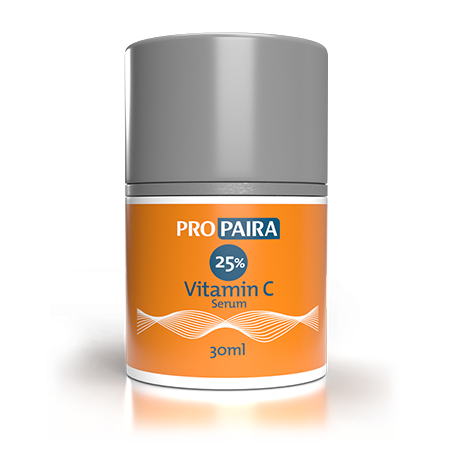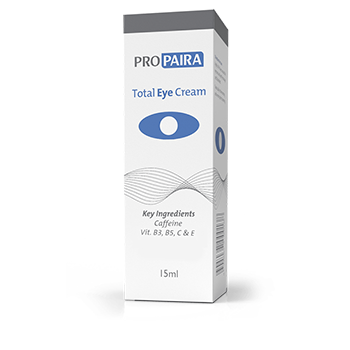Vitamin C (L-ascorbic acid)
- L-ascorbic acid is the most powerful form of Vitamin C
- Propaira uses the most powerful form of Vitamin C in its 25% Serum
- Skin brightening and lightening of pigmentation
- Wrinkle reduction
- Plumper skin
- Improves skin texture
- Helps protect the skin from environmental stress
Healthy skin naturally contains a lot of vitamin C, which helps with key functions such as boosting collagen production and protecting the skin from damage caused by UV rays. Studies have shown that older or sun-damaged skin tends to have lower levels of vitamin C. It is unclear if this is the cause of skin ageing but it's also known that too much exposure to pollution or UV rays can reduce vitamin C levels in the outer layer of the skin.
The large amount of vitamin C in the skin shows that it plays several important roles in keeping the skin healthy. Vitamin C is a powerful antioxidant that can neutralise and remove harmful substances, like those found in pollution or caused by sun exposure. It also helps enzymes that strengthen collagen, making its structure more stable and boosts the body’s ability to produce collagen.
Another benefit of vitamin C is that it has been found to reduce pigment production. This happens because it can block the enzyme tyrosinase, which plays a key role in pigment production. This ability to lower pigment/melanin makes vitamin C helpful for treating skin discolourations, such as dark spots or melasma.
References
Pullar, Juliet M., Anitra C. Carr, and Margreet C. M. Vissers. (2017), The Roles of Vitamin C in Skin Health, Nutrients 9, no. 8, pg. 866. Availible at: https://doi.org/10.3390/nu9080866
Products that contain Vitamin C (L-ascorbic acid)

